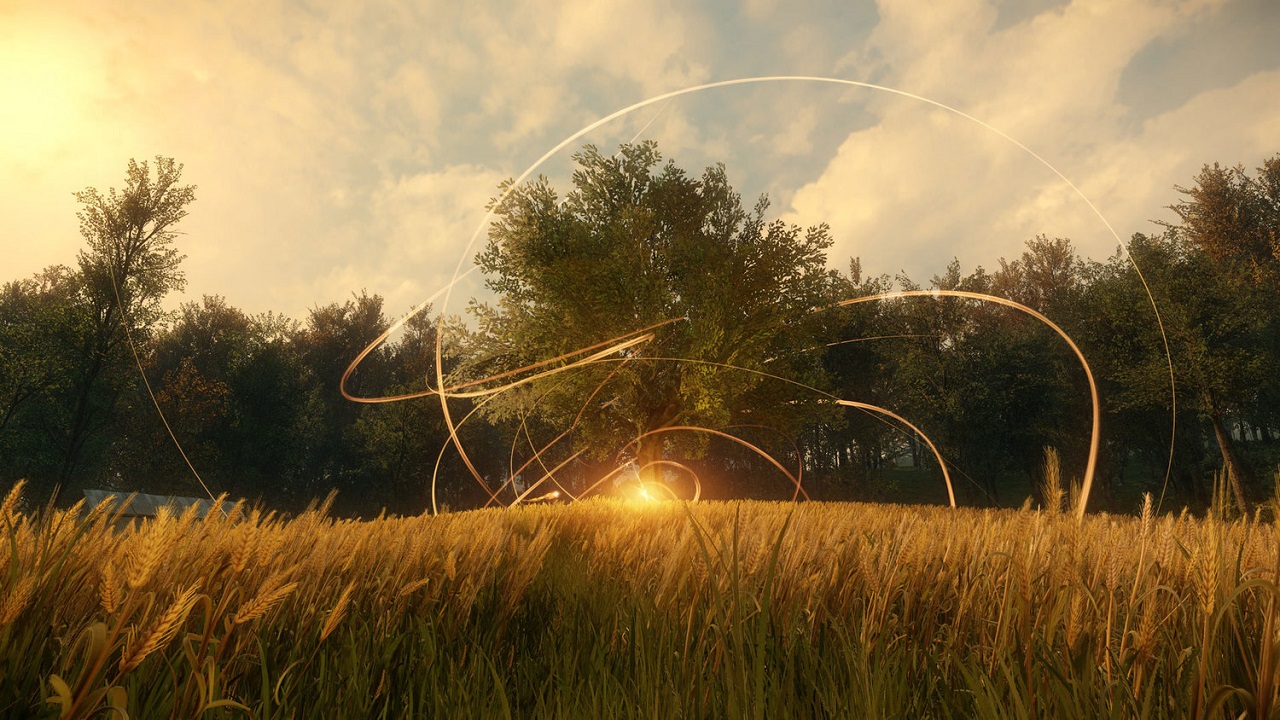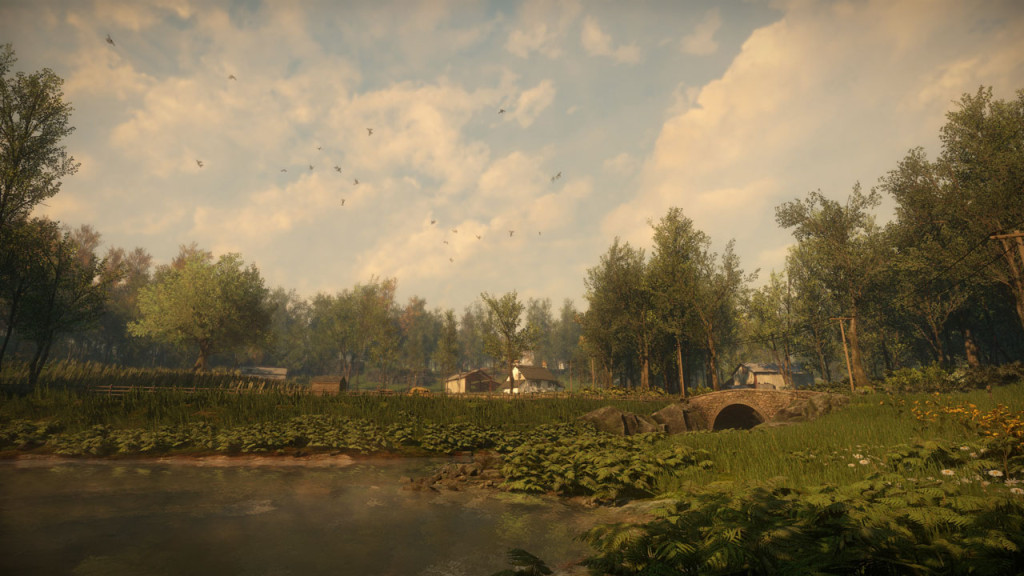First-Person Exploration Games are becoming more and more popular over the last few years with games like Gone Home displaying the potential of the genre. Everybody’s Gone To The Rapture follows in the footsteps of those games but does nothing to advance the genre.
The setup. In Everybody’s Gone To The Rapture you explore a post-apocalyptic English countryside set in 1984. You come into the game knowing basically nothing about the area you are exploring or where to go. The only thing you do know is that you must explore the countryside for any evidence as to why everyone has disappeared. Throughout the game you begin unraveling the mystery while also learning more about the people who once lived there.
There is no question that the story is the main focus of the game. The story centers around trying to figure out what happened to the people of this world and what caused them to vanish from existence. The story is told by listening to conversations between golden silhouettes of the people who lived in the area, and listening to audio recordings from radios. By listening to these conversations, you try to slowly piece together what happened to everyone and the relationships everyone had with each other. I found many of the conversations to be interesting and well written, but there were some that seemed to add nothing new to the story and were rather pointless. By the end of the game you will have many theories as to what happened by using the pieces of information you gathered from listening to the characters conversations. The story holds your attention for the most part due to it being the only reason for playing the game because the gameplay itself is as simple as it gets.
The gameplay. The gameplay in Everybody’s Gone To The Rapture is simple and can best be described as a walking simulator. The main gameplay mechanic is following orbs of light that lead you to the next area with a conversation you can listen to. Following the orbs of light takes away some of the fun of exploring and finding new information regarding to the story. Following the orbs makes the game feel much more guided than you would have expected from a game with a fairly large open world. While the world may be large there is not actually much to interact with in that world. There is very little interaction with the world and the only things I was able to interact with during my playthrough was activating TVs, microwaves and radios.
Basically walking around and exploring are the only things you can do which is hurt by the snail-like pace your character walks. Walking around the game is like watching paint dry as your character moves so slow even when you are holding down the sprint button, which barely makes a distance in the speed you character moves. Near the end of the game I became more reluctant to explore due to how slow the character moved. I expected the gameplay to be simple, but the lack of interactivity and slow movement speed made moving about the world more of a chore than fun.

Exploring the world of the game as mentioned above becomes more of a chore than anything, but the world itself is beautiful. The game provides many moments that provide breathtaking views of the world that seem like they were taken from a painting. While the English countryside doesn’t add much as far as variety of environments the world still is very impressive graphically. Exploring the breathtaking world is only hurt by the slow walking pace of the player, and not the setting or the graphics.
Everybody’s Gone To The Rapture is a impressive looking game, but the story, and specifically the gameplay does very little to set it apart in the genre. While the story is engaging and interesting, for the most part it never really clicks and left me with more questions than answers. The gameplay is simple and boring even for a FPX game. Everybody’s Gone To The Rapture is an okay game with a above average story and boring gameplay, if you are a fan of story driven games with simplistic gameplay then this game might interest you, but there are many better options to choose from than Everybody’s Gone To The Rapture.


